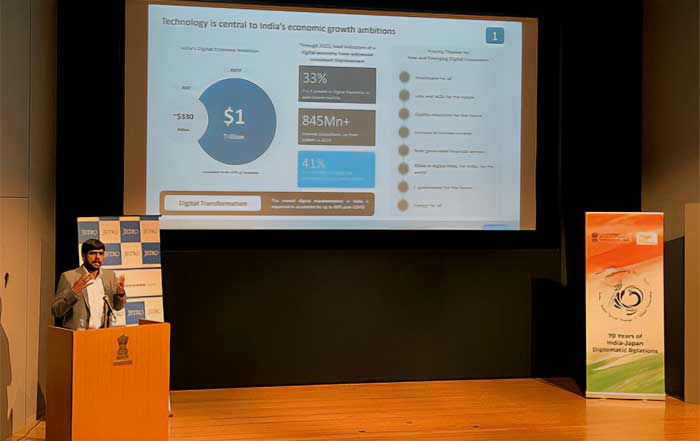The Freelance Platforms Powering the Global Economy in 2026
Freelancing as a Core Pillar of Modern Work
By 2026, the freelance economy has matured from a disruptive trend into a foundational pillar of the global labor market, reshaping how professionals build careers, how companies access talent, and how value is created across borders and industries. Independent work is now deeply embedded in the economic fabric of North America, Europe, Asia-Pacific, Africa, and South America, and is no longer framed as a stopgap or side hustle but as a strategic, long-term career path for millions of skilled professionals.
Digital marketplaces such as Fiverr, Upwork, and Freelancer.com continue to anchor this transformation, connecting businesses of all sizes with a worldwide pool of talent that spans software engineering, design, marketing, finance, consulting, and emerging disciplines such as AI integration and sustainability strategy. These platforms, alongside regional players like PeoplePerHour and sector-specific ecosystems in creative, tech, and consulting fields, have made it possible for a startup in Berlin, a corporation in New York, or a scale-up in Singapore to assemble distributed teams in days rather than months. Learn more about how global employment patterns are evolving on the employment section of creatework.com.
For the audience of creatework.com-freelancers, remote professionals, entrepreneurs, and executives navigating a rapidly changing business environment-the freelance platform landscape is no longer an optional resource but a strategic infrastructure. It supports new forms of remote work, new models of business startup, and new approaches to managing money, risk, and growth.
The Scale and Momentum of the Freelance Platform Economy
The global freelance and gig workforce is estimated to exceed 1.8 billion participants in 2026, contributing well over a trillion dollars annually to worldwide GDP, according to various labor market analyses and independent research from organizations such as the World Bank and the International Labour Organization. As broadband penetration, cloud computing, and digital payments infrastructure have expanded, especially in emerging markets, the barriers to entering global freelance marketplaces have steadily eroded.
Platforms like Upwork have evolved from simple job boards into sophisticated ecosystems that provide contract management, compliance support, and integrated collaboration tools. Fiverr, once synonymous with low-cost micro-gigs, now hosts Fiverr Pro and complex, multi-stage projects for brands and agencies, while Freelancer.com continues to leverage its reach across more than 200 countries and regions, reflecting the true global nature of independent work. Businesses exploring how to use these platforms as part of a flexible operating model can find strategic context on the business hub at creatework.com.
Governments and institutions have taken notice. Policy debates in the United States, United Kingdom, Germany, Canada, Australia, and across the European Union now routinely address the rights, taxation, and social protections of independent workers. At the same time, economic development strategies in countries such as India, Philippines, Nigeria, and Kenya explicitly reference online freelancing as a mechanism for export-led growth and foreign exchange earnings. International bodies like the OECD have published detailed analyses of platform work, its risks, and its potential to support inclusive growth; those interested in the structural implications can explore current thinking on the OECD's work on the digital economy.
Why Platforms Dominate: Trust, Structure, and Technological Depth
The enduring dominance of freelance platforms in 2026 stems from their ability to institutionalize trust at scale while compressing the friction traditionally associated with cross-border hiring. Unlike informal networks or unstructured online classifieds, leading marketplaces provide identity verification, ratings and reviews, portfolio hosting, milestone-based contracts, and escrow systems that protect both sides of the transaction.
For a data analyst in Poland, a UX designer in Spain, a developer in Brazil, or a content strategist in South Africa, these features provide the infrastructure to work confidently with clients in New York, London, Tokyo, or Sydney, without needing to navigate complex international legal or payment systems alone. For clients, the same infrastructure dramatically reduces perceived risk and accelerates procurement cycles, which is why large enterprises now routinely embed platforms like Upwork Enterprise or Fiverr Business into their vendor strategies.
These platforms also differentiate themselves through ongoing technological innovation. AI-powered recommendation engines, automated proposal scoring, and skill-based search filters are now standard, and in many cases, they are capable of predicting project needs before clients fully articulate them. Upwork's talent clouds and Fiverr's service packages, combined with predictive analytics, enable businesses to assemble teams optimized for cost, expertise, and time zone coverage. Professionals who specialize in areas such as AI, automation, and data science can deepen their understanding of these trends via creatework.com's coverage of AI and automation.
This combination of trust mechanisms, workflow tools, and machine learning-driven discovery has elevated freelance platforms from simple intermediaries to strategic infrastructure providers in the global economy.
Economic Significance and Macro-Level Impact
Freelance platforms now play a non-trivial role in national and regional economies, particularly in countries with strong digital capabilities and youthful populations. In India and the Philippines, online freelancing has become a central pillar of the broader outsourcing and business process services industry, contributing billions of dollars in export revenue annually. Development organizations such as the World Bank highlight digital labor platforms as tools for inclusion, enabling workers from secondary cities and rural regions to access global demand without migrating physically; more on this perspective is available in the World Bank's resources on the digital economy.
In advanced economies like the United States, Canada, United Kingdom, Germany, France, and the Nordic countries, freelancing has become a flexible buffer that helps businesses manage economic volatility and structural shifts in the labor market. During periods of uncertainty-whether driven by inflation, geopolitical tension, or rapid technological change-companies can scale freelance engagements up or down without the fixed costs associated with permanent headcount. This dynamic flexibility is increasingly recognized by policymakers and analysts at institutions such as the IMF, which has examined the implications of digital platforms for productivity and labor allocation; interested readers can explore broader macroeconomic context through the IMF's research portal.
At the micro level, freelance income often flows directly into local economies through spending on housing, education, and small business creation. In many regions of Africa, South Asia, and Latin America, independent work has become a pathway to middle-income status for skilled workers who might otherwise face underemployment or informal labor conditions. The economy section of creatework.com regularly examines these linkages between individual opportunity and systemic economic change.
Regional Dynamics: A Truly Global Landscape
North America: Scale, Sophistication, and Regulation
In the United States, independent workers now represent a substantial proportion of the labor force, with estimates from organizations like MBO Partners and Freelancers Union suggesting that nearly half of working adults engage in some form of freelance or independent work each year. Major corporations in technology, media, finance, and healthcare rely on platforms for specialized roles in software engineering, cybersecurity, data science, and creative production. Regulatory debates around worker classification, benefits, and platform responsibilities have intensified, with states such as California and New York experimenting with different legislative approaches.
Canada has followed a similar trajectory, particularly in urban centers like Toronto, Vancouver, and Montreal, where tech ecosystems and creative industries have embraced hybrid teams composed of employees and freelancers. Federal and provincial authorities have worked to modernize tax and benefits rules for self-employed professionals, often informed by research from institutions like Statistics Canada and academic centers focused on the future of work.
Europe: Diversity of Models and Strong Worker Protections
In Europe, the freelance economy reflects the continent's diversity in labor laws, social models, and industry structures. The United Kingdom, post-Brexit, has leaned heavily on cross-border freelance talent to compensate for domestic skills shortages, with platforms like PeoplePerHour complementing global players. In Germany, the famed Mittelstand of small and medium-sized manufacturers increasingly contracts independent specialists in engineering, digitalization, and export marketing to remain competitive.
Countries such as France, Italy, Spain, and the Netherlands have all seen rapid growth in platform-based work, accompanied by regulatory initiatives from the European Commission aimed at clarifying platform responsibilities and worker rights. Analysts tracking these developments often refer to resources provided by the European Commission's employment and social affairs directorate, which discusses platform work and digitalization of labor markets.
Meanwhile, Sweden, Norway, Denmark, and Finland have integrated freelancing into broader strategies focused on innovation, sustainability, and green transition projects, ensuring that independent professionals can participate in cutting-edge initiatives around renewable energy, circular economy, and climate technology.
Asia-Pacific: Volume, Innovation, and Strategic Policy
The Asia-Pacific region remains the fastest-growing hub of freelance activity. India and the Philippines continue to dominate in IT services, creative work, and customer support, supported by strong English proficiency and deep experience in outsourcing. National strategies emphasize digital skills, with government-backed programs and partnerships with global platforms to train workers for high-value remote roles.
In China, South Korea, and Japan, freelancing intersects with advanced manufacturing, AI research, and e-commerce ecosystems. Professionals with expertise in robotics, machine learning, and cross-border digital trade are in high demand, and many engage with both domestic platforms and global marketplaces. Singapore has positioned itself as a regional hub for digital talent and innovation, with government agencies like Enterprise Singapore and SkillsFuture promoting freelance entrepreneurship and continuous learning.
Australia and New Zealand have embraced location-independent work as part of broader lifestyle and regional development strategies, leveraging strong digital infrastructure to attract both domestic freelancers and international digital nomads.
Africa and South America: Inclusion and Opportunity
Across Africa, countries such as Nigeria, Kenya, South Africa, and Egypt have emerged as important sources of freelance talent in software development, digital marketing, design, and online education. International NGOs and development agencies, including the International Finance Corporation and various UN bodies, have piloted training programs to help young professionals connect to global demand through platforms. These initiatives aim to address youth unemployment and encourage technology-driven entrepreneurship.
In South America, Brazil, Argentina, Colombia, and Chile have become vibrant hubs for design, engineering, and content production. Economic volatility and currency fluctuations have, paradoxically, encouraged more professionals to seek income from international clients, diversifying their earnings and building resilience. Cross-border collaboration within Latin America has also increased, with regional marketplaces and communities complementing global platforms.
The Strategic Lens for Businesses: From Transactional to Integrated Use
For businesses in 2026, freelance platforms are no longer experimental channels but critical components of workforce and operating strategy. However, the difference between ad hoc usage and strategic integration remains significant. Organizations that treat platforms purely as low-cost labor pools often experience inconsistent quality and fragmented knowledge, whereas those that design intentional engagement models tend to unlock greater value.
Companies that succeed typically start by segmenting their needs into transactional tasks and strategic capabilities. Short-term, clearly defined tasks-such as logo creation, landing page copy, or basic data cleaning-are often well suited to marketplaces like Fiverr. Longer-term initiatives, such as product development, digital transformation, or market expansion, are better served by curated talent pools on Upwork, specialized consulting platforms, or direct relationships with a stable bench of freelancers. Entrepreneurs designing their first hiring strategy can find practical guidance in the business startup resources on creatework.com.
Cost arbitrage remains an attraction, but experienced executives increasingly recognize that the most sustainable gains come from accessing specialized expertise and speed rather than simply lowering hourly rates. Vetting processes that combine portfolio review, structured interviews, small paid trial projects, and ongoing performance tracking have become standard practice in mature organizations. This approach helps companies build long-term relationships with reliable freelancers who understand their brand, systems, and culture.
Hybrid workforce models, in which core employees are augmented by flexible pools of independent professionals, now define the operating reality of many firms in technology, media, professional services, and even manufacturing. These models allow companies to respond quickly to changing market conditions while maintaining a lean fixed cost base-a dynamic explored frequently in creatework.com's coverage of remote work.
Freelancer Success: Skills, Positioning, and Professionalization
On the supply side, the professionals who thrive on platforms in 2026 are those who treat freelancing as a business rather than a series of gigs. They invest systematically in skills, brand positioning, client relationships, and financial management, aligning closely with the principles of Experience, Expertise, Authoritativeness, and Trustworthiness that are central to creatework.com.
Continuous upskilling has become non-negotiable. The rapid diffusion of artificial intelligence, automation, and low-code tools means that baseline technical tasks are increasingly commoditized. Freelancers who remain competitive are those who move up the value chain into strategy, integration, and problem-solving. Learning ecosystems such as Coursera, edX, and Udacity provide accessible pathways for acquiring advanced skills in data science, cybersecurity, cloud architecture, and digital marketing; professionals can explore these platforms directly via resources like Coursera's catalog to align their learning with market demand. Complementing external education, creatework.com's upskilling section focuses on how independent workers can plan and finance their learning over time.
Equally important is cross-disciplinary capability. A freelancer who can design a user interface, understand conversion-focused copywriting, and interpret analytics dashboards offers far greater value than a specialist in a single narrow function. This integrated expertise is particularly prized in small and mid-sized businesses that seek end-to-end solutions from limited budgets. The creative and knowledge-intensive sectors, in particular, reward professionals who combine technical mastery with business acumen and communication skills, a theme explored in the creative coverage on creatework.com.
Professionalization also extends to how freelancers manage money, contracts, and risk. Those who succeed over the long term typically develop robust systems for pricing, invoicing, tax planning, and savings. Tools and insights available through creatework.com's money and finance sections help independent workers think more like business owners, emphasizing cash flow management, diversification of clients, and preparation for economic downturns.
Technology, Productivity, and Remote Collaboration
The infrastructure that enables freelancers and clients to collaborate effectively has grown substantially more sophisticated since the early days of remote work. Project management platforms such as Asana, Trello, and ClickUp are now deeply integrated with communication tools like Slack, Microsoft Teams, and Zoom, as well as with storage and version control solutions like Google Workspace, Dropbox, and GitHub. These tools allow distributed teams to operate with a level of coordination and transparency that rivals, and sometimes exceeds, co-located teams.
For freelancers juggling multiple clients across time zones, productivity is a function of both personal discipline and the smart use of technology. Time-tracking software, automated invoicing solutions, and AI-assisted drafting or coding tools can significantly increase output without eroding quality. Independent professionals looking to refine their tool stack and workflows can draw on the curated insights and recommendations in creatework.com's productivity tools section.
Remote collaboration has also become more human-centric. Video meetings, asynchronous updates, and shared digital whiteboards help bridge cultural and geographic divides, while clearer norms around availability, response times, and documentation reduce friction. The normalization of remote work in corporate environments-accelerated by the experiences of the early 2020s-has made it easier for freelance professionals to integrate seamlessly into teams, regardless of location.
Lifestyle, Well-Being, and the Human Dimension
Beyond economics and technology, the freelance revolution has profoundly reshaped lifestyles and expectations around work. Many professionals in United States, United Kingdom, Germany, Canada, Australia, France, Italy, Spain, Netherlands, Switzerland, Singapore, Japan, Thailand, Brazil, South Africa, and other regions now view autonomy and flexibility as core components of career satisfaction.
The rise of digital nomad visas in countries such as Portugal, Estonia, Thailand, and Costa Rica, along with remote-work-friendly policies in numerous European and Asian jurisdictions, has made it possible for freelancers to live and work in locations that align with their personal preferences and financial goals. Resources from organizations like Nomad List and government immigration portals provide practical information on residency, taxation, and infrastructure for remote workers; those curious about the lifestyle implications can explore overviews such as Portugal's official e-Residency and digital nomad information via its government websites.
However, the freedom associated with freelancing is accompanied by real challenges: income volatility, isolation, blurred boundaries between work and personal life, and the absence of employer-sponsored health and retirement benefits. Increasingly, independent workers are turning to private insurance providers, professional associations, and digital communities to fill these gaps. The lifestyle section of creatework.com addresses this human side of freelancing, emphasizing sustainable routines, mental health, and long-term planning.
Looking Toward 2030: Deeper Integration and Greater Responsibility
Looking ahead to 2030, the trajectory of the freelance platform economy points toward deeper integration into corporate strategy, greater policy attention, and more sophisticated expectations from both clients and professionals. AI and automation will continue to reshape the nature of tasks available on platforms, with routine work increasingly handled by software and higher-value work centered on creativity, judgment, and complex problem-solving. Professionals who embrace these tools as amplifiers rather than threats are likely to see their productivity and earnings rise.
Platforms themselves are likely to expand their role from matchmaking engines to comprehensive workforce infrastructure providers. Health insurance options, retirement savings products, tax assistance, and compliance services are already emerging in pilot form and will become more common as competition and regulatory scrutiny increase. Thought leadership from institutions such as the World Economic Forum, which regularly publishes insights on the future of work, suggests that multi-stakeholder collaboration will be essential to balancing innovation with worker protections.
At the same time, policymakers in North America, Europe, Asia, Africa, and South America are under growing pressure to update labor laws, social protection systems, and tax regimes to reflect the realities of platform-mediated work. Experiments with portable benefits, universal social protection floors, and new forms of collective representation for freelancers are likely to accelerate. Organizations such as the ILO provide ongoing analysis and recommendations on these issues, which can be explored through their dedicated pages on platform work and the gig economy.
Ultimately, the most significant shift may be cultural. As freelancing becomes normalized across professions-from software engineering and design to law, finance, and education-workers and organizations alike will increasingly see independent, portfolio-based careers as a mainstream option rather than an alternative path.
Conclusion: Freelance Platforms as Strategic Infrastructure for a New Era
In 2026, freelance platforms stand at the intersection of technology, business strategy, and human aspiration. They have transformed how talent is discovered, evaluated, and engaged, enabling professionals around the world to participate in the global economy regardless of geography, and empowering businesses to assemble agile, high-performing teams on demand.
The opportunities are substantial: greater autonomy for workers, expanded access to global markets for businesses and individuals, and new channels for economic development across regions. The challenges-regulatory uncertainty, benefits gaps, algorithmic opacity, and market saturation-are equally real and demand thoughtful responses from platforms, policymakers, and the professionals who depend on them.
For the global community that turns to creatework.com-freelancers designing sustainable careers, founders building lean startups, executives rethinking workforce strategies, and professionals seeking to manage their money and future with greater control-these platforms are not merely tools but strategic environments. By approaching them with a focus on experience, expertise, authoritativeness, and trustworthiness, and by leveraging the insights available across creatework.com, from freelancers and remote work to business and technology, stakeholders can position themselves to thrive in a labor market that is more global, more digital, and more flexible than at any time in history.
As the world moves toward 2030, the freelance platforms shaping work in 2026 will continue to evolve, but their central role in enabling opportunity, innovation, and economic resilience is firmly established-and creatework.com remains committed to helping its audience navigate and lead in this new era.




